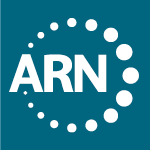Role of the Nurse on the Rehabilitation Team
It is the position of the Association of Rehabilitation Nurses (ARN) that the use of collaborative effort through a team delivery model offers the most comprehensive rehabilitation care. There is no other area of health care that exemplifies the concept of a team approach to health care more than rehabilitation. The rehabilitation nurse, easily accessible to individuals, families, team members and other concerned parties, and by virtue of specialized education, expertise, and interest in caring for individuals with chronic illness and disabilities, is considered the most qualified team leader and a key partner in a successful rehabilitation program. We believe that the outcome of rehabilitation is maximized when the rehabilitation nurse takes a leadership role and collaborates with rehabilitation team members.
Rationale
Rehabilitation is a continuous process and clients rehabilitate themselves through the influence of the comprehensive approach to care provided by the rehabilitation nurse. Rehabilitation nurses are leaders who specialize in assisting individuals affected by chronic illness and disability to maximize their health through health restoration, maintenance and promotion. The rehabilitation nurse functions as a care coordinator as they partner with the client, caregiver and the other rehabilitation specialists to solve problems and promote clients' maximal independence. The function and role of team leader and care coordinator is reflected throughout all activities of the rehabilitation nurse. Rehabilitation nurses are particularly skilled at working with others to adapt ongoing care to the constant changes in healthcare and to resources available to achieve timely outcomes.
Rehabilitation Team
The collaborative rehabilitation team model facilitates care in a coordinated and cost-effective manner. The team is composed of professionals from various disciplines that differ in educational preparation, professional expectations, and responsibilities. Each team members bring a unique perspective and individual expertise, but works collaboratively balancing the physical, psychological, emotional, spiritual, social and vocational needs and preferences to achieve optimal outcomes. The rehabilitation team members involved depend on many factors, including client's need, resources, and insurance coverage for services. The team members may include, but is not limited to, the following members:
- Client and Caregiver
- Physiatrist
- Primary Care Physician
- Rehabilitation Nurse
- Social Worker
- Physical Therapist
- Occupational Therapist
- Speech/Language Pathologist
- Psychiatrist
- Psychologist, or Neuropsychologist
- Recreation Therapist
- Audiologist
- Dietitian
- Vocational Therapist
- Case Manager
- Respiratory Therapist
- Spiritual Care Counselor
The Rehabilitation Team Meeting
A collaborative rehabilitation team success depends on effective communication which includes team meetings that may be held periodically depending on the setting and needs. Topics included at team meetings include such items as the following:
- the client's plan of care
- the client's progress
- short- and long-term goals
- barriers/complications that may affect the plan
- length of stay
- client and caregiver education needs
- discharge planning
Nurses Role in the Rehabilitation Team
- Provision of holistic, well-rounded care to the client and caregiver
- Establishes collaborative goals with the rehabilitation team and implements interventions that results in the best possible outcome to meet the needs of the client and caregiver
- Maintains a strong commitment to the rehabilitation team
- Participates in the rehabilitation team process at team conferences and other team meetings and offers input into team decision making
- Communicates effectively and interacts in a manner that facilitates the group process and team building
- Reinforces the care provided by other team members
- Coordinates team activities
- Evaluates the effectiveness of the treatment plan on an ongoing basis
- Advocates for the client and caregiver
- Acts as a resource to the rehabilitation team possessing the specialized knowledge and clinical skills necessary to provide care for people with physical disability and chronic illness
- Provides teaching for rehabilitation team members and reinforces the teaching done by specialists in rehabilitation and other healthcare disciplines
References
- Association of Rehabilitation Nurse. The Rehabilitation Staff Nurse Role Description (Brochure).
- Association of Rehabilitation Nurses. Rehabilitation Nurses make a difference (Brochure).
- Easton, K. L. (1999). Gerontological Rehabilitation Nursing. Philadelphia: W.B. Saunders Company.
- Edwards, P., Hertzberg, D. L. Hays, S. R. & Youngblood, N. M. (1999). Pediatric Rehabilitation Nursing.
- Philadelphia: W.B. Saunders Company.
- Glenview, IL: Association of Rehabilitation Nurses
- Neal, L. J. (2004). Care of the Adult with a Chronic Illness or Disability: A Team Approach. Elsevier
- Mosby, Inc.
Approved March 2007

